Happy new Year again guys. So this is my new year's blog post, although I wanted this up in the first week, school and some other things got in the way. Anyways, I'm happy to finally put this up.
Last year was bittersweet for me. More bitter than sweet but alas it has ended.
The crossover night was very emotional, the whole time I couldn't stop the feelings that washed over me. The feelings of underachievement, of loss, of failure. It was a terrible feeling but I allowed myself to acknowledge it anyways. One thing I've learnt in the past year was to always allow myself feel every emotion and experience, be it sadness, gratitude, happiness, wins and losses.
Another lesson was that I did not properly plan for the year and that was the biggest reason for my "losses".
Even if I didn't achieve much last year, I'm grateful for the mistakes because they made me more self aware. I can say I achieved a bit of self realization. I made some wrong decisions, some mistakes and lost some opportunities. Moving forward, I want to learn from those mistakes, and instead of having these sad feelings of loss, I'll make lessons out of them. Here they are, hopefully you can also learn from them.
Hope you have a good read.
LESSON 1:MAKE PLANS
Like I said earlier, I think the biggest mistake I made last year was not setting plans. I had goals, but they were feeble because they had no substance. Plans are the substance of goals. They are the skeleton in our new year's resolution. We often step into the new year feeling rejuvenated, with a feeling of newness, of fresh start. This is good which is why we need to strike the iron while it's hot, I mean put in the work now that we feel all eager and zealous. I'm sure we all have our list of goals for the year, whatever they may be, the only way to actualize these goals is to make proper plans that will help you get closer bit by bit to your goals. For example, one of my goals for 2024 is to lose weight, my plans to achieve this will include a healthy eating habit like avoiding junks, processed carbs and sugar loaded foods, incorporating intermittent fasting, eating nutrient-dense foods and veggies, working out more and so on. Another is to finish writing a book before the end of the year, to achieve this, I intend to complete at least 3 chapters each month. Now that I have my plans in place, the next step would be to break these plans into the smaller daily tasks. This would help you not feel overwhelmed. To also avoid being overwhelmed by your goals (because they may seem too big to achieve), do not focus on your goals. Yes, you heard right. Rather focus on the simpler daily tasks, take it one day at a time. Again, using my weight loss example, I plan to lose at least 25kg by the end of the year, instead of focusing on how to lose 25kg, I'll focus on losing say, 2-3kg per month. Now that looks easier to achieve.
There are many ways to plan your goals for the whole year. However, I chose one to try because it looks easier to commit to and seems more effective. It's called the 12 Week Year Plan and has a book that explains the method. You can give it a try.
Plans are very important if we want to achieve anything, so for each of your goals, write a corresponding plan that is actionable for you then break them down into daily or weekly tasks.
LESSON 2: BE DISCIPLINED AND CONSISTENT.
Basically, this calls for self improvement and character development. Last year, I felt I was lazy and that was why I could not make anything meaningful of the year. I realized that wasn't entirely true, it wasn't totally because of my laziness but because I lacked discipline. Discipline is a very important ingredient to achieving anything in life. Discipline is a hard trait to develop, but once you do, you'll be glad you did. It makes carrying out your plans easy, it makes personal growth faster. Discipline is hard to build, but easy to continue once you have it. Personally, I think discipline boils down to one's will power, one's mental strength. As I am struggling with it as well, I created a way to help me develop it by making a daily routine (do note, it's for beginners like myself). This is how it works, I arrange a list of things I must do each day in a particular order. Two things are important: The tasks and The order. Its easy to just do the tasks however you like, but in order for this to work, you must carry them out in an exact order every day, why? Because forcing yourself to carry out a particular sequence of things every time will eventually make you feel committed to it in the long run. So, except on special occasions where you may have a more important or unforeseen activity, don't allow yourself the leniency to make random adjustments. You'll notice that you begin to delay gratification just to stick to your routine, this is how you know you're becoming disciplined.
Another important character to build is consistency. The only way to improve is to practice, so whatever you are hoping to achieve, you must be consistent in doing them. To be consistent you have to be disciplined because in the beginning, you may get tired or bored of doing the same thing everyday. Consistency pays off in the end and Discipline will help you not give up till the end.
LESSON 3: MAKE EVALUATIONS
Check yourself always. Ask yourself questions like. - How much would I rate my progress so far?
- How far away am I from achieving my goal?
- Am I going about this the right way?
- Will this help me in the long run or would it be better to try something else?
Evaluations are very necessary to success. Just like in schools, we write tests and exams to evaluate us and based on our score, we can tell if we did good or not and how we can improve ourselves. Same thing applies to Goal setting. Evaluate yourself at specific times of the year, for instance, at the end of each month, "what have I achieved this month". If you were faithful to your plans, you would be happy looking at your progress. If you weren't, you motivate yourself and work even harder so not to fail again the next month. A tip to help you evaluate yourself is to use a habit tracker. There are many options to pick from; an app, a template either in pdf or excel format or you can make one yourself. Personally, I prefer to use an app. I use these two two apps as they are quite easy to navigate and have good features.
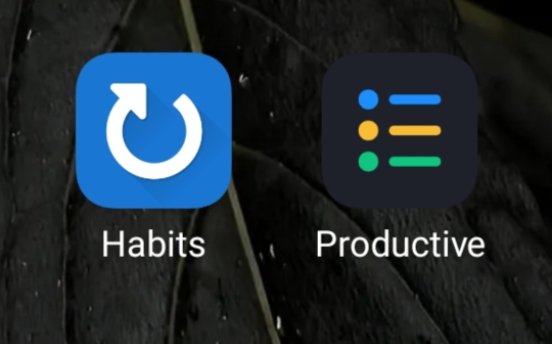
Screenshot from my phone
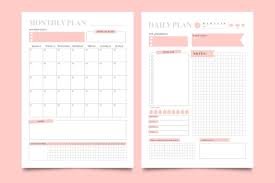
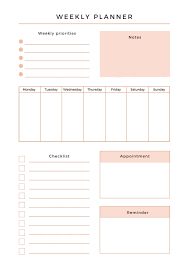
Image Source
Habit trackers helps you check your progress.
LESSON 4: HOLD YOURSELF ACCOUNTABLE
It's very easy to get away with our bad behaviors when there are no one but ourselves responsible for us. It is easy to feel unaffected and look past our failures because we are not accountable to anyone. This was also one of my big mistakes last year, I didn't at any point feel irresponsible with the way I was living. Now, I'm learning to hold myself accountable. I have a list of goals I want achieved 12 weeks from now (following the 12 week year plan method) and even at the end of this month. If per adventure, I fail to achieve one or some, I only have myself to blame and I owe it to myself to be feel responsible and remorseful. Holding yourself accountable does not mean hating yourself when you fail, it does not mean feeling not good enough, you shouldn't be too hard or toxic to yourself. Holding yourself accountable means you recognize and acknowledge your shortcomings, it means you are ready to try harder, it means you understand where and how you failed and will come up with better solutions. It means you won't allow yourself feel sad for too long and give up. This is why Lesson 3; Evaluation is important. You'll know if you have been True To Yourself which is the meaning of accountability.
LESSON 5: BE INTENTIONAL
This may just be the most important lesson. Be Intentional. Even after we set our goals, made adequate plans, are putting them into action, and even smashing some of our goals already we may still feel underachieving. When we become intentional towards achieving our goals, we understand why we are doing them, we know what we expect at the end and more importantly, how it would make us feel. Be Intentional in doing those daily tasks, be aware that it is for a reason, be wholeheartedly dedicated to doing them. One good thing about being intentional is this- even if, for one reason or the other, you don't achieve that goal, you know in all honesty you gave it your best and that alone is a win. Being intentional means being able to identify when you are stirring off track, acknowledging your mistakes and celebrating your wins. Being intentional in pursuing your goals will make you so engrossed that you lose sight of the distractions and become more focused on achieving those goals on your list.
Here's to smashing all your goals this year
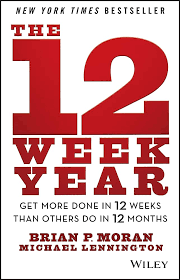
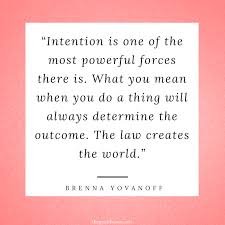
It's amazing that you were able to learn this much from your experience last year. Thanks, I find this helpful.
Glad you did. Thanks for reading and dropping a comment